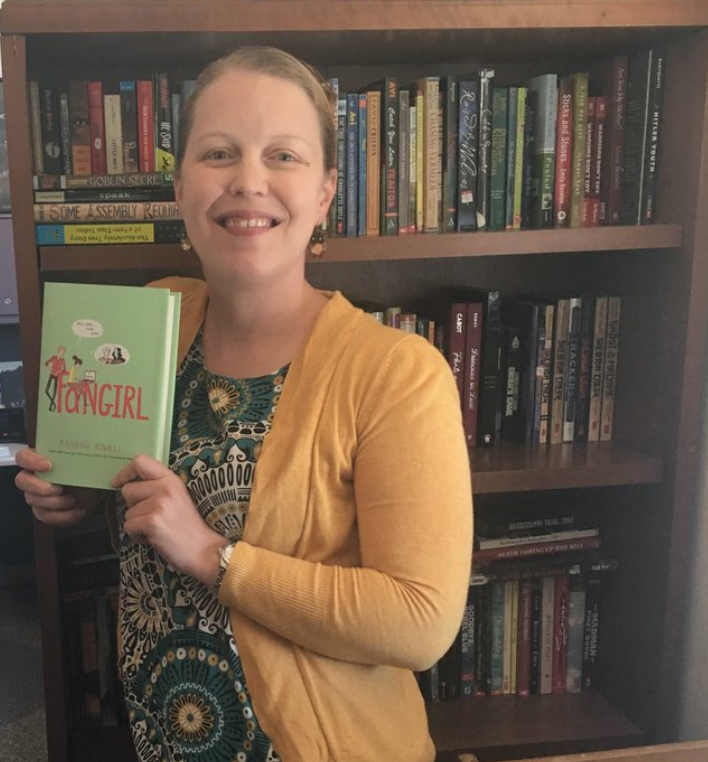On July 5, 1852, Frederick Douglas gave his keynote address during an Independence Day celebration in Rochester, NY, titled What to the Slave is the Fourth of July. During his speech, Douglas asserted,“[t]his Fourth of July is yours, not mine. You may rejoice, I must mourn.” While many Black Americans are familiar with Douglas’s words and celebrate the significance of Juneteenth, it was largely ignored and unknown to most Americans. In 2021, Juneteenth was declared a federal holiday to celebrate when the enslaved Black Americans of Galveston, Texas were freed as Union Troops arrived after the Civil War ended (Jack Miller Center, 2022; National Museum of African American History and Culture, 2023). While most Americans may not be able to provide a historical context for Juneteenth as a National Holiday, it provides a significant event in our nation’s history.
Unfortunately, the words of Fredrick Douglas are still salient today. Freedoms exist in different ways for specific communities and populations. Existing freedoms for underrepresented and marginalized groups continue to be under attack. A 2021 article in the Journal of Democracy indicated that violence has increased in response to the tensions between the two main political parties and a “variety of social events that touch on a number of interrelated identities” (Kleinfeld, 2021). Political tensions have increased, along with hateful rhetoric and violence. As political tensions and rhetoric increases, so has oppressive legislation. In the past year, at least 17 states have enacted laws restricting or banning gender affirming care for minors. (DeMillo, 2023). Currently, 13 states have eliminated abortion services, 3 have severely restricted these services, and 9 have restricted services (Planned Parenthood, 2023). According to Mapping Police Violence, Black Americans are 2.9 times more likely to be killed by the police than White Americans. Ultimately, these tensions are about choices-who has the agency to make their own choices?
Our K-12 schools are a reflection of our social and political tensions. During 2022, challenges to books have taken place across all 50 states (ALA, 2023). The reason for these challenges are clear: our young learners continue to hold the power to change to and make changes for the future. More recently, Young Adult (YA) literature has been reimagined by multiple voices and communities. Adolescent readers have learned to turn to books to be seen, to be heard, to have a voice, to inspire change, and to get and give ideas. YA books have the power to challenge our institutional structures, and that seems to scare those who challenge books. The choice to read a book should belong to the reader.
Most schools are out for the summer; however, there are myriad opportunities to share the power of YA literature with your students and young readers. It may be in the form of an email to former students or incoming students, or a shared book list with the school or local library or a simple recommendation. One may choose to join a summer program at a local child care center or community center, or simply publish book choices on social media. The important thing is to share literature that continues to inspire our young learners and future leaders to enact social justice. While there are many reasons to continue to champion YA literature and the freedom to read, one of the most crucial ones is to sustain our democracy.
Inspiring Civic Action and Civil Disobedience
The following books are books that inspire and challenge readers. Some of these books have been challenged, but they all provide a context for understanding how crucial civic participation and engagement is for our adolescents. Each book has created a context for how choice may exist differently for different individuals. These books provide context for how there are different Americas for different communities and individuals.
The Book of Unknown Americans (2015) by Cristina Henríquez
Henríquez threads multiple stories of documented and undocumented immigrants. She highlights the Rivera family’s desperate move from Mexico to the United States in hopes of receiving medical care for fifteen-year-old Maribel. The stories of the Riveras and their neighbors highlight the true stories of immigrants that the media, and politicians, do not promote. Each story highlights the tension that comes with making the choice to immigrate to a new country, and the experiences of a new culture, language, and customs surrounded by hostility and fear.
- Teaching activities: All states have a social studies unit on immigration. Many of the states limit it to the Irish and Italian immigration of the 1800s. It’s important to contextualize immigration, and the choices that immigrants faced and continue to face. Teachers can use resources like the Zinn Education Project, the Library of Congress, and the Immigrant Learning Center to provide a more realistic context for immigration.
Gender Queer: A Memoir (2019) by Maia Kobabe
As the most challenged book of 2022, Kobabe’s book is probably well known to most. However, the choice to read this book may have been removed from many students. This book is Maia’s autobiography, and eir story. E wrote this book to provide a venue for nonbinary and asexual stories to be shared in the conversation around gender identity. Kobabe’s gender identity is not a choice, but finding a way to share eir story was an important one.
- Teaching activities: While it may be difficult to integrate as a whole class reading, the book does need a place in a classroom library and the school library. In order to build a classroom community. The format of Kobabe’s comic style could provide a non-threatening way to introduce students’ identities and backgrounds into the classroom. Teachers should also use the Human Rights Campaign Glossary as a resource.
Internment (2019) by Samira Ahmed
Another work of speculative fiction, Ahmed creates a horrific setting for internment camps created for Muslims. Layla Amin and her parents are forced into an internment camp under the guise of Muslim terrorism. Layla leads a revolution within the camp, and Ahmed describes conditions of the camps that are reminiscent of the Holocaust and Japanese Internment camps. Ahmed’s story provides a context for complicity in the face of the hatred, and what happens when freedom is dismantled little by little.
- Teaching Activities: It’s crucial that students are able to trace the anti-Muslim rhetoric and Islamophobia that stems from September 11, 200. Students should examine stories of Muslim Americans, Sikh Americans, and South Asian Americans who all experienced hate crimes in the wake of September 11, 2001.
- Teachers can also examine Executive Order 13769 and 13780, signed in 2017 by then-President Donald J. Trump.
- In January 2021, President Joseph R. Biden revoked Executive Order 13780 citing religious freedom, however, students can examine the timeline of the Executive Order 13769, which is still in partial effect.
Kneel (2021) by Candace Buford
Russell Bordeaux is a Black football player, and the star tight end on the school's varsity football team. He is trying to keep his head down, get a scholarship, leave his racist small town, and help his family. But, his best friend is unfairly arrested and removed from the team. In protest, Russell kneels during the National Anthem before the next football game. While the topic of kneeling is timely and highly politicized, Russell’s story clarifies that sometimes the “choice” to protest, is not a choice at all.
- Teaching activities: This topic lends itself well to debates and evidence-based persuasive essays. There are ways to differentiate the arguments surrounding the topic of kneeling by examining political cartoons or satirical responses to the freedom of expression demonstrated by Colin Kaepernick or Megan Rapinoe.
The Marrow Thieves (2017) by Cherie Dimaline
In this work of speculative fiction, Indigenous people of North America are being hunted and killed again-this time for their bone marrow. Diamline echos the horrors of the past genocide and the resilience of the Indigenous people. The book illustrates how the characters have to constantly fight to be agents in their own lives.
- Teaching Activities: This book lends itself to naturally understand the truth surrounding the genocide of the indigenous groups in North America. Teachers can use lesson plans from Zinn Education Project, and the American Indian History from the Organization of American Historians.
- Teachers can also use We Are Still Here, an interview with Debbie Reese
- Teachers should use resources from Indigenous Organizations
Unpregnant (2019) by Jenni Hendriks and Ted Caplan
The ultimate choice, Unpregnant explores how college-bound overachiever, Veronica Clarke discovers that she’s pregnant. The only place for her to get an abortion is over nine hundred miles away. Veronica embarks on a road trip with her former best friend, now enemy, to exercise her right to choose. This is a must read for all students, particularly those who are preparing to vote for the first time. Also, the book is better than the movie.
- Teaching activities: Supreme Court case, Roe vs. Wade Overturned (Friday, June 24, 2022)
- Consequences of healthcare for individuals with reproductive organs
- Implications for contraceptive access, same-sex relationships, and future health care obstacles for gender affirmation
Voting Booth (2020) by Brandy Colbert
This book takes place in one day, Voting Day, and demonstrates the difference in political tendencies among 18-year old high school students. Duke Crenshaw is turned away from voting and Marva Sheridan witnesses this voter suppression in real time. While it is a cute love story that involves a hunt for a cat, the core of this book is about how democracy is messy. Voter suppression is a reality, and it’s illustrated well for future voters and activists.
- Teaching activities: Students can engage in local voting drives; offering registration for local elections. Classroom activities can also provide a segue into researching the history of voter suppression during units on Civil Rights.
We Are Not Free (2020) by Traci Chee
Chee provides a collective account of young Nisei, second-generation Japanese American citizens who are incarcerated in internment camps during World War II. While in the land of freedom, over 1000,000 people of Japanese descent were removed from their homes and forced into desolate internment camps. Chee’s grandparents, who were teenagers at the time and American citizens by birth, were also incarcerated for three years. While Chee uses 14 different stories to provide a larger context for experiences in the internment camps and how the horrors of the camps have never really been acknowledged.
- Teaching activities: There are multiple resources available to contextualize the horrors of the internment camps. The following resources provide stories from the camps, primary documents, and educator resources for developing learning opportunities to provide the true history of our nation’s history during World War II.
- Densho: Preserving the Japanese Americans Stories of Past
- Library of Congress: Behind the Wire
- National Archives: The Japanese Internment Camps
- National World War II Museum: The Japanese Internment Camps
- PBS: Children of the Camps
Nelson Mandela once said, “May your choices reflect your hopes, not your fears”. These books inspire hope for the future as our students engage with literature that inspires change. While each piece of literature addresses difficult topics and current tensions, these stories provide the nuances that are missing from the hateful rhetoric surrounding controversial issues. YA literature is revolutionary, and books provide salvation. The current political tensions and increased attack on individual liberties and libraries is frightening, but not new. The struggle to control thoughts and choices is not a new fear in our democracy (see: Orwell, George). However, the voices and the stories are different; the fears are different, and the Americas we live in are different. YA literature offers young readers from all the Americas in the United States to participate in democracy.
References
American Library Association. (2023). Attempts to restrict books during 2022. Retrieved from: https://www.ala.org/advocacy/bbooks/by-the-numbers
Jack Miller Center. (2022). Juneteenth. Retrieved from:
https://jackmillercenter.org/juneteenth/?gclid=Cj0KCQjwtO-kBhDIARIsAL6LordpjKGX8bu3N8LV3Im_iLN6gopPNb7ybDosVUVPIQy4-NslIFIRrNQaApdQEALw_wcB
Kleinfeld, R. (2021). The rise of political violence in the United States. The Journal of Democracy, 34(4), 160-76.
Mapping Police Violence. (2023). Retrieved from: https://mappingpoliceviolence.org/
National Museum of African American History & Culture. (2023). The historical legacy of Juneteenth. Retrieved
from: https://nmaahc.si.edu/explore/stories/historical-legacy-juneteenth
Planned Parenthood. (2023). Is abortion still accessible in my state now that Roe v. Wade was overturned? Retrieved from: https://www.plannedparenthoodaction.org/abortion-access-tool/US





 RSS Feed
RSS Feed